Natural Language Processing (NLP) is transforming the manufacturing industry by enhancing decision-making, enabling intelligent automation, and improving quality control. As Industry 4.0 continues to evolve, NLP is becoming an essential tool for gaining insights from unstructured data, increasing productivity, and reducing human error.
Let’s learn more about the use cases of NLP in manufacturing and how it is shaping the manufacturing domain. We have curated an Self Paced, Online NLP Course, which you can explore. Let’s get started with WeCloudData!
What is NLP? & Why is it Important in Manufacturing?
Natural language processing (NLP) is a subfield of AI enabling machines to understand, interpret, and generate human languages. NLP acts as a bridge between human communication and computer understanding, hence allowing computers to process and analyze huge amounts of textual data. In manufacturing, NLP-powered solutions are being used to:
- Automate documentation and reporting
- Improve defect detection
- Quality assurance
- Enhance supply chain communication
- Optimize predictive maintenance
Case Study – Sprout Social
Salesforce introduced Sprout Social, an NLP-based social media listening tool to assist their social media team. The team saved 12,000 work hours in the first year and gained improved insights on client feedback regarding their products.
An Associate Manager of Social Media at Salesforce stated, “It’s so important to measure engagement to ensure we continue creating content our audience loves. With Sprout, we can do that quickly—reporting out at any time so we always know where things stand.”
Sentiment analysis (an NLP technique) enables companies like Salesforce to use NLP-based tools that better meet customer needs and preferences.

Current Trends and Adoption Rates of NLP in Manufacturing
The adoption of NLP in manufacturing is increasing, driven by technological trends such as:
Integration with IoT: Using NLP together with Internet of Things (IoT) devices to collect and analyze real-time data from manufacturing equipment.
Advanced Analytics: Applying NLP to supply chain management, production optimization, and quality control.
Human-Robot Collaboration: Using NLP in robotics to enhance human-robot interactions on the production floor.
Applications of NLP in Manufacturing
Increasing Production Efficiency with NLP
Manufacturers can increase productivity and decrease downtime by using NLP-powered tools to analyze large amounts of data. NLP in manufacturing allows for real-time production process monitoring, which helps businesses streamline operations. Manufacturers can improve workflows, lower errors, and boost overall efficiency by deriving valuable insights from unstructured data.
Automating Quality Control & Defect Detection
Manual inspections are resource-intensive and prone to errors. NLP-based manufacturing systems can detect defects more quickly by analyzing text-based data, maintenance records, and customer feedback.
Examples:
- NLP algorithms can scan warranty claims to detect recurring product issues.
- Machine learning models trained on defect descriptions can predict failures before they occur.
NLP in Supply Chain Optimization
Keeping production schedules on track requires effective supply chain management. NLP can optimize procurement and inventory management by analyzing logistics data, market trends, and supplier communications. NLP enables companies to predict supply chain problems and make data-driven decisions, avoiding expensive delays. In supply chains, misunderstandings cause delays and inefficiency. Natural language processing assists by:
- Processing purchasing orders automatically
- Taking important information out of supplier contracts and emails.
- Using news and logistical data to forecast disruptions
Improving Customer Service in Manufacturing
NLP-powered virtual assistants and AI-driven chatbots are revolutionizing manufacturing customer service by offering immediate answers to customer inquiries, increasing customer satisfaction and engagement. NLP-driven automation can assist in resolving technical issues, tracking orders, and improving customer interactions in real time.
NLP in Packaging and Labeling
NLP is utilized in the packaging sector for quality control, automation, and regulatory compliance. Siemens’ NLP systems are used to confirm that packaging labels adhere to international compliance standards.
Document Automation
In document processing, NLP tools can automatically classify, extract key information, and summarize content, reducing the time and errors associated with manual data handling. Manufacturing reports, manuals, and compliance documents are automatically created using NLP techniques as NLP makes it easier to maintain records and process invoices. Key benefits of using NLP for document automation in manufacturing include;
- Saves time and effort by automating document-related operations.
- Decreases the expenses related to processing documents by hand.
- Reduces mistakes in records and paperwork.
Extracting Insights from Unstructured Data
NLP enables businesses to classify and analyze massive amounts of unstructured data from the manufacturing industry to find patterns and areas for improvement. The data includes maintenance logs, reports, and feedback forms. NLP can process large volumes of text efficiently, allowing manufacturers to make data-driven decisions.
Challenges & Future of NLP in Manufacturing
While NLP in manufacturing offers immense benefits, challenges include:
- Data privacy concerns when processing sensitive logs
- Integration complexity with legacy systems
- Need for skilled professionals
NLP in manufacturing is no longer a futuristic concept—it’s a necessity for staying competitive. From automating inspections to optimizing supply chains, NLP use cases in manufacturing are transforming operations. Companies that invest in NLP tools today will lead the Industry 4.0 revolution.
How Can WeCloudData Help With NLP
If you’re interested in learning NLP, WeCloudData offers a specialized Natural Language Processing (NLP) course that covers foundational concepts, deep learning techniques, and hands-on projects with real-world datasets. This course is ideal for professionals aiming to build careers in AI and NLP.
Why Choose WeCloudData for Your Data Journey?
Because WeCloudData Offers:
- Self-paced Courses to learn at your convenience.
- Comprehensive course in Python, SQL, statistics, AI, and Machine Learning.
- Data & AI Training Programs for Corporate with expert instructors.
- Mentorship from industry professionals to guide your learning journey.
- Portfolio support to build projects that stand out.
- Career services to help you land your dream job.
Ready to kickstart your career? Visit our website today and take the first step toward an exciting future in data and AI!

